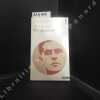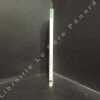HACKER, P.M.S
Wittgenstein
Editions Points, Collection "Essais/Les grands philosophes" n°437 - 2000 - In-12, broché, couverture illustrée en N&B - 91 p.
Reference : 114005
Bon état - Coins légèrement émoussés - Légers frottements sur la couverture
Bookseller's contact details
Librairie Le Père Pénard
S.A.R.L. Nicolas RIVAT (gérant)
2, quai Fulchiron
69005 Lyon
France
librairie.le.pere.penard@wanadoo.fr
04 78 38 32 46
Payment mode

Sale conditions
vente par correspondance / envoi à la réception du chèque de règlement augmenté des frais de port . Paiement par virement, PayPal, espèces ou chèques
5 book(s) with the same title
Wittgenstein. 1. Les années de jeunesse, 1889-1921.
Seuil, 1991, gr. in-8°, 395 pp, traduit de l'anglais, 8 pl. de photos hors texte, index, broché, couv. illustrée, bon état
Seul volume paru. — Un destin tragique a marqué la vie de celui qui est aujourd'hui considéré comme l'un des plus grands philosophes du XXe siècle. Né à Vienne, en 1889, au sein d'une famille richissime – son père était un magnat de la sidérurgie –, le jeune Ludwig Wittgenstein connaîtra les derniers feux de la monarchie austro-hongroise et les tourbillons de la vie intellectuelle et artistique de son temps, mais aussi les terribles drames que furent les suicides successifs de trois de ses frères, Hans en 1902, Rudi en 1903 et Kurt en 1918. Passionné depuis l'enfance par les machines, Ludwig fait des études d'ingénieur à Berlin, puis à Manchester où il se spécialise en aéronautique. En 1911, brusque virage, il décide de suivre les cours de Bertrand Russell, à Cambridge. C'est Russell qui, le premier, parlera de son génie. Une grave crise s'opère alors, à la fois existentielle et intellectuelle (mystique et folie ne sont pas loin), qui conduira Wittgenstein à rompre avec Russell (et son entourage de Cambridge) et à se frayer dans la solitude son propre chemin philosophique. Comme en témoignent ses carnets intimes, la guerre de 1914 -1918 est le tournant décisif de son existence. Paul, son dernier frère, pianiste de renommée internationale, est amputé du bras droit (c'est pour lui que Ravel composera son Concerto pour la main gauche). Ludwig, qui s'est engagé, se conduit héroïquement sur le front de l'Est, puis sur le front italien. Rentré à Vienne, après avoir été prisonnier, il renonce à sa fortune et à ses biens. Après la guerre, Wittgenstein publie, en 1921, le très célèbre “Tractatus logico-philosophicus” puis se retire comme instituteur dans un village de la montagne autrichienne. — Ainsi se clôt le premier tome de cette monumentale – et déjà classique – biographie, écrite par Brian McGuinness, traducteur de Wittgenstein et philosophe, qui enseigna lui-même, à Oxford, pendant trente-cinq ans. Le livre puise largement dans des sources inédites, notamment la correspondance, quasi journalière, de Russell avec Lady Ottoline Morrell. — "Le premier volume de la biographie de Wittgenstein écrite par McGuinness est paru en 1988. Il est à présent disponible en traduction française. L'ouvrage couvre la période qui s'étend de la naissance de Wittgenstein jusqu'à la publication du “Tractatus” en passant par l'enfance en Autriche, les études d'ingénieur, le séjour à Cambridge (et la rencontre avec Russell), la retraite en Norvège, la participation à la première guerre mondiale dans les troupes austro-hongroises, la captivité en Italie après la défaite et enfin les études d'instituteur qui suivirent son renoncement à la philosophie. Le travail de McGuinness est d'abord, par sa rigueur scientifique, celui d'un historien. Il a consulté une masse impressionnante de documents (notamment la correspondance de Russell), les a soumis à la critique afin de retracer de manière précise et détaillée ce que fut la vie de Wittgenstein durant ses années de jeunesse. Mais là n'est pas la seule qualité de l'ouvrage. Il met également très bien en lumière le cheminement philosophique tout à fait singulier d'un des plus grands penseurs de ce siècle. À travers la lecture des carnets intimes de Wittgenstein notamment, l'auteur révèle le lien intime qui unit ce cheminement philosophique à un cheminement existentiel tortueux. Celui-ci, marqué par une crise profonde, amena Wittgenstein à rompre avec Russell et avec la philosophie universitaire de Cambridge, pour se tourner vers ce que, faute d'un mot plus adéquat, on pourrait appeler la mystique..." (Hervé Pourtois, Revue Philosophique de Louvain, 1993)
WITTGENSTEIN et la critique du monde moderne : tradition et rupture / WITTGENSTEIN en de kritiek van de moderne wereld : traditie en breuk.
La Lettre Volée Essais 1990 La Lettre Volée, Coll. Essais, 1990, 134-130 pp, bilingue français-néerlandais, bon état.
Actes du colloque "Tradition et trupture : Wittgenstein et la critique du monde moderne", tenu à Bruxelles les 24 et 25 janvier 1990 / Teksten van hel colloquiium "Traditie en breuk : Wittenstein en de kritiek van de moderne wereld", dat plaastvond te Brussel op 24 en 25 januari 1990).Table : Introduction, Soucy / Wittgenstein, la modernité du regard, Chauviré / La fin de l'art et de l'Histoire. Wittgenstein, Musil et l'esprit de la civilisation, Cometti / Wittgenstein et Weininger, Le Rider / Ludwig Wittgenstein : éthique, psychanalyse et écriture philosophique, Gargani / Tradition et rupture : Wittgenstein et Kraus, Bouveresse / Le Tractatus : rupture avec la métaphysique, débouchant sur Platon, Verhack. Merci de nous contacter à l'avance si vous souhaitez consulter une référence au sein de notre librairie.
Wittgenstein on Rules and Private Language. An Elementary Exposition. - [THE FIRST WRITTEN PRESENTATION OF KRIPKENSTEIN]
Oxford, Blackwell, (1982). 8vo. Orig. full cloth w. gilt lettering to spine, minor bumping to capitals, otherwise a near mint copy in the orig. d-j., which is also near mint. X, 150 pp.
First edition of the immensely influential work on Wittgenstein by the exceedingly influential and important logician and philosopher of language, Saul Aaron Kripke. Kripke was professor of philosophy in America, and his works are quite rare, since many of them remain unpublished and are only known in privately circulated manuscripts. In 2001 he received the Schock Prize in Logic and Philosophy. Kripke is renowned for his studies of Wittgenstein, which are printed in this work for the first time. The subject of Kripke's book is usually referred to as ""Kripkenstein"", since the results (as well as the method) have very little to do with what is commonly accepted as the philosophy of Wittgenstein. Kripke's main claim in this (in)famous book is that all previous commentaries on Wittgenstein's Philosophische Untersuchungen (Philosophical Investigations) have failed to understand W.'s argument against ""private language"". According to Kripke Wittgenstein's ""private language argument"" is principally to be explicated in terms of the problem of ""following a rule"". The ""meaning scepticism"" presented in this work has caused a wide range of secondary litterature and very harsh critique. The book has been called a scandal of philosophy, and the number of well-esteemed philosophers who have lined up to criticise the book is very large indeed. Among these can be found Noam Chomsky, John Searle, Peter Winch, Gordon Baker etc etc. However flawed the reading of Wittgenstein is considered to be, though, the work has received overwhealming attention, and is considered highly important and interesting.
MAGAZINE LITTERAIRE-N°352-MARS 1997-LUDWIG WITTGENSTEIN
108 PAGES-21 CM X 27 CM-EN COUVERTURE WITTGENSTEIN PAR MORETTI-DOSSIER WITTGENSTEIN SUR 44 PAGES-ASPECTS DE LA LITTERATURE JAPONAISE, 32 PAGES-LOUIS-RENE DES FORETS: LES GRANDS MOMENTS D'UNE VIE-LA NATURE COMME PROFESSEUR, BERNARD BLANGENOIS, PHOTO-L'AMOUR DANS LA NEIGE, JEAN-MARIE ROUART, PHOTO-PIERRE MOINOT TABLEAUX DE CHASSE, PROPOS RECUEILLIS PAR MICHEL PIERRE, 5P, 3 PHOTOS-JOINT ARTICLE DE LIBERATION DU JEUDI 26 NOVEMBRE 1998 "BOUVERESSE SANS IVRESSE LES VIES WITTGENSTEIN"
COUVERTURE SOUPLE ETAT TRES BON
An Interpretation and Critique of Wittgenstein's Tractatus. - [INTERPRETING WITTGENSTEIN]
Copenhagen, Munksgaard, 1964. Royal 8vo. Orig. printed wrappers. A bit of foxing and sunning to wrappers, otherwise fine. Internally very nice and clean. 238 pp.
First edition of this doctoral dissertation by the important Danish Professor Emeritus of Philosophy, David Favrholdt (born 1931). David Favrholdt, student of Jørgen Jørgensen, is considered the Danish authority on Wittgenstein, and his early interpretation of Wittgenstein's ""Tractatus"" has proved important for the tradition of reading and interpreting Wittgenstein in Scandinavia. Shortly after having written his doctoral dissertation, Favrholdt was appointed the first professor of philosophy at the new university of Odense in Danmark (1966), a post that he possessed for 35 years. He was born in Oregon, USA, and graduated as cand.psych in 1956 and cand.phil in 1959 from the University of Copenhagen. He has greatly influenced modern Danish philosophy and is hugely popular among students of philosophy and psychology.""On the one hand, I consider the ""Tractatus"" over-estimated, for it contains many mistakes, and could be improved in all respects. On the other hand, I am convinced that some valuable points of the book have been overlooked by the commentators of Wittgenstein, and that his own fundamental viewpoint has never been understood. I am counsel for the prosecution and counsel for the defence in one. I hope this attitude is constructive, not confusing."" (Favrholdt, Preface, p. (8) ).The work was reprinted several times in the 60'ies, the first reprint being from the year after the first edition.
 Write to the booksellers
Write to the booksellers




